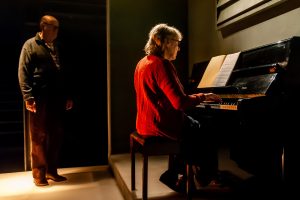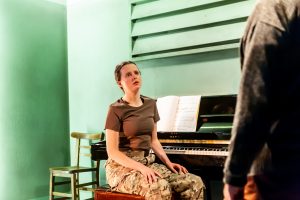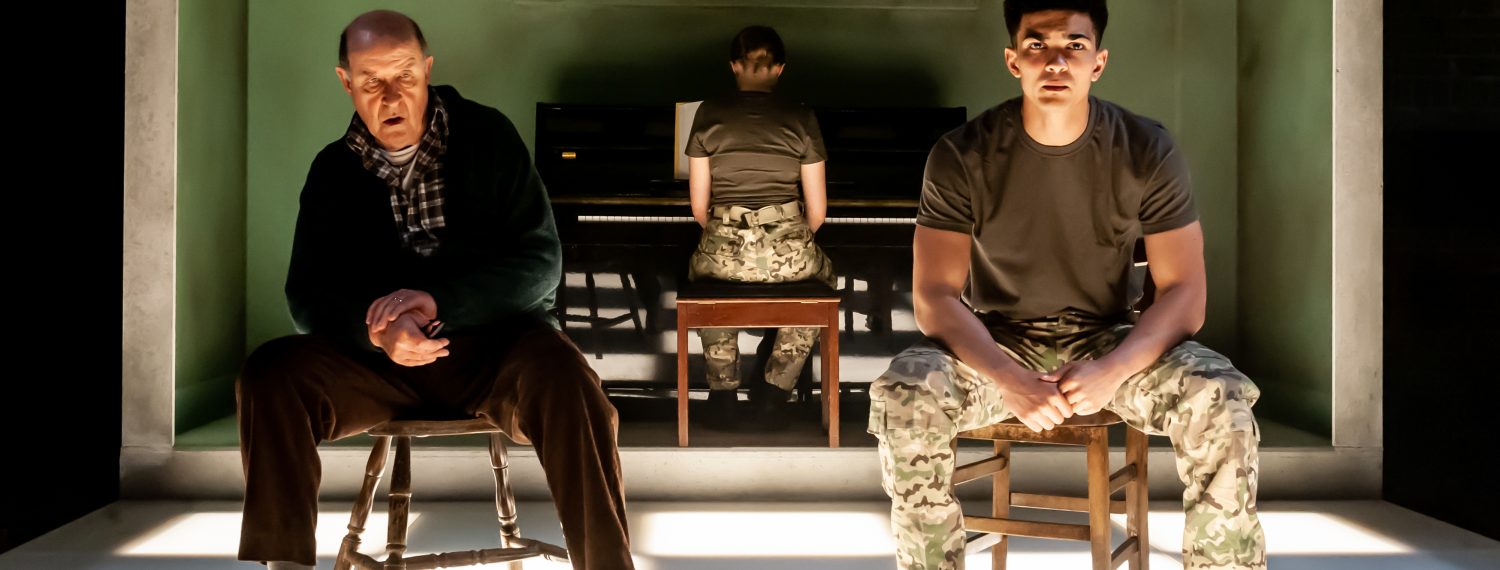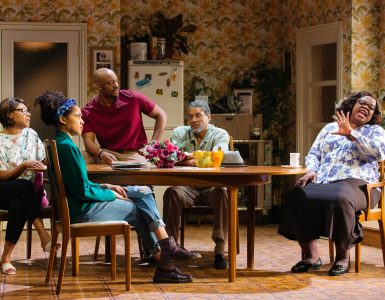Anthony Walker-Cook looks at Mike Bartlett’s Not Talking at the Arcola Theatre. Written in 2006, the play offers an emotional look at what happens when one of the most basic of human interactions breaks down.
Written when Mike Barlett was at university, Not Talking first appeared as a radio play in 2006 but has only just premiered at the Arcola Theatre. As per the title, the play depicts the consequences of being silenced in the face of personal hardship, especially when institutional or social expectations and pressures demand restraint. Engaged across old and young characters, it is an accomplished piece, made all the more impressive by strong acting by all four performers and a disciplined artistic vision from director James Hillier and the Defibrillator company.

The play focuses on two couples. The first is James (David Horovitch) and his wife Lucy (Kika Markham) whose superficially quaint marriage has always been defined by the former’s status as a ‘conscientious objector’ to World War Two, whilst young soldiers Mark (Lawrence Walker) and Amanda (Gemma Lawrence) grapple with covered secrets in the army. These stories intersect, but often characters speak more to the audience than each other. Cross-generational pairs do occur on stage in stichomythias, and the couples’s stories, though separated by around fifty years, do interweave. Often the same story will be told from different perspectives and couples jump in and out of the same conversation. The narratives of the two women never directly intersect, but they both play Chopin on the piano when talking is no longer an option: the younger Amanda finds it is her only source of relaxation whilst Lucy uses it to tell her husband she knows exactly why he returns home later than planned. Each character is wonderfully realised on stage. Horovitch brings a softly-spoken and lightly humorous demeanour that also commands respect (though it is hard to afford his character any), whilst Markham’s quietly hurt Lucy becomes almost unsettling in her passivity. Where the younger pair often speak quickly, the older duo maintain the assured, almost comforting, pace of lived lives, and experiences gained. Lawrence’s injured but ultimately dry eyes contrast against Walker’s tearful ones as he follows orders, and both bring a youthful, energetic presence to the stage.
That Not Talking was adapted as a radio play is unsurprising: Hillier’s production is rather simple. Amy James Cook’s set is spartan: a hall of an army barracks with a piano in the centre sits at the back of the stage, whilst two wooden chairs are sometimes brought onto the square front. Zoe Spurr’s lighting turns the stage into a series of small dark and light squares, almost like a chessboard, dictate the characters’ movements by the lit spaces. The layout of the Arcola Theatre means the audience sits both in-front and to the side of the stage, an intimate venue for a difficult play. Walker takes advantage of this, often looking audience members directly in the eye when relating Amanda’s circumstance – reminiscent of how he, like us, simply watched and did not talk.

At only eighty odd minutes, Not Talking is a short play; this, combined with the sparse set means it can be difficult to feel fully immersed in Barlett’s production. The message of the play is clear, as are the benefits of talking when we face entrenched social norms. Certainly, Not Talking deserves to be talked about. The play begins with James remembering ‘as a boy, I used to speak to everyone and anyone, incessantly. I found talking easy’: now, more than ever, we need to return to this child-like mind-set and be willing to both talk and listen.
Not Talking will be performing at the Arcola Theatre until 2nd June, 2018.














